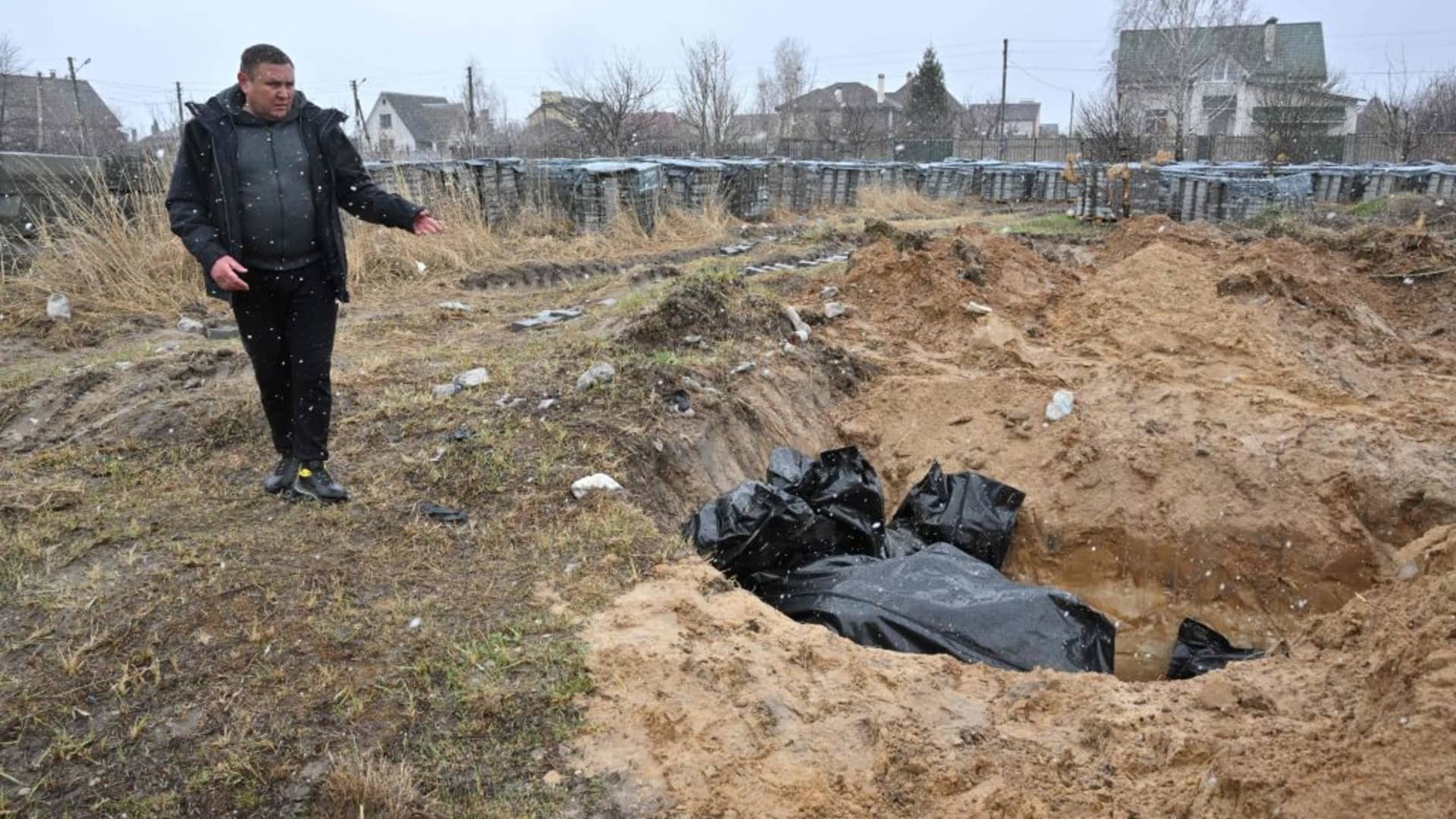
The U.S. and its European allies are preparing to deliver another slew of sanctions on Russia following mounting evidence of war crimes committed by its forces in Ukraine.
“The European Union condemns in the strongest possible terms the reported atrocities committed by the Russian armed forces in a number of occupied Ukrainian towns, that have now been liberated,” a statement from the European Council said on Monday. Ukraine has accused Russian forces of carrying out a massacre in the town of Bucha, where it said 300 residents were killed.
“The massacres in the town of Bucha and other Ukrainian towns will be inscribed in the list of atrocities committed on European soil,” the European Council’s statement said. Haunting photos of residential streets strewn with bodies have been published by international news outlets. Russia is denying the accusations, calling the photos “another provocation” from Ukraine.
A German government spokesperson told reporters Monday that further sanctions would be decided “in the coming days.” Germany’s defense minister has also said the EU must discuss banning imports of Russian gas.
“There has to be a response. Such crimes must not remain unanswered,” Christine Lambrecht said Sunday.
But Poland says the biggest obstacle to this is Germany itself. “It’s Germany that is the main roadblock on sanctions,” Polish Prime Minister Mateusz Morawiecki said Monday.
So far, Berlin has refused to embargo oil and gas imports from Russia, saying that Europe depends too heavily upon them. Some 40% of Europe’s gas is provided by Russia — and Germany imports almost 60% of its natural gas from the country.
Other Western leaders have also called for expanding the penalties on Russia.
U.S. Secretary of State Antony Blinken said Sunday that Washington and its European counterparts were examining new financial penalties for Russia “every single day.”
“We’re tightening the existing sanctions. We’re adding new ones. We’re doing it in full coordination with Europeans and other partners around the world. And one of the results is that the Russian economy is reeling,” Blinked told CNN in an interview Sunday, although he did not share details of any potential future penalties.
“These sanctions are having a big bite now, they’re going to have a big bite going forward as long as this lasts, and we are every single day making sure that they’re not only tightened, but increased,” he added.
Meanwhile, U.K. Foreign Secretary Liz Truss is in Poland Monday to discuss coordinated action by NATO allies and increased punitive measures against Moscow.
“Britain has helped lead the way with sanctions to cripple the Putin war machine. We will do more to ramp up the pressure on Russia and we will keep pushing others to do more,” Truss said.
Sanctions delivered by the EU and U.S. following Russia’s invasion of Ukraine that began on Feb. 24 are the strongest ever levied on the country.
More than half of its central bank reserves have been frozen, and many Russian banks have been cut off from accessing the SWIFT interbank messaging system. Sanctions have also been imposed on several billions of dollars worth of Russian export links and industries and powerful Russian individuals.
The sanctions have hit Russia’s economy hard. Its currency has seen volatile swings and its central bank has more-than doubled interest rates, while the withdrawal of hundreds of foreign companies from the country has triggered waves of job losses.




